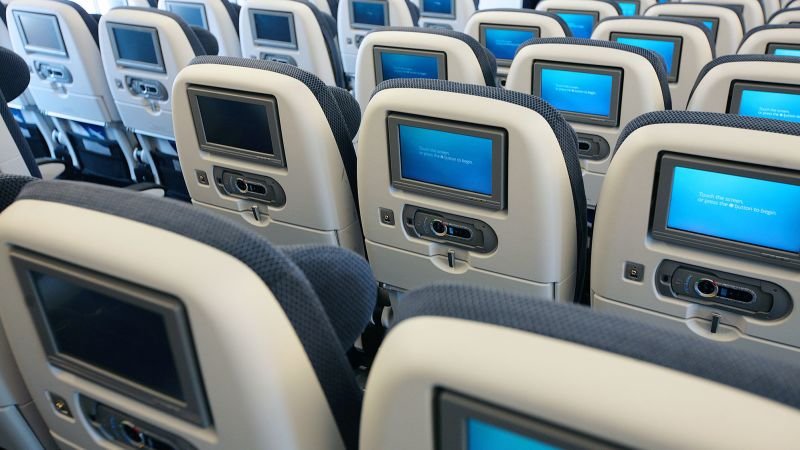Surviving a long-haul flight can be a daunting task, but Kris Major, a British flight attendant with 24 years of experience, shares valuable tips to make the experience more manageable. As many people gear up for long-haul trips, especially during the holiday season, Major provides insights on how to endure multiple hours in the sky.
One of the key dilemmas for travelers is whether to eat before or during an overnight flight. Major suggests prioritizing sleep on night flights and eating before boarding. This is particularly crucial for shorter long-haul flights, where the sleep window is limited. For instance, on a journey from New York to London, travelers may only get around five or six hours of sleep, making pre-flight rest important. Major notes that seasoned travelers often fall asleep immediately after takeoff, highlighting the importance of maximizing sleep time.
While eating before flying is an ideal strategy, Major acknowledges that it’s not always feasible due to factors like long security lines and busy airport terminals. Business or first-class passengers may be tempted to indulge in on-board food and drinks, but Major advises against it, as the cabin service can take up to two hours, cutting into valuable rest time. Instead, he recommends taking advantage of airport lounges, especially when flying in premium classes, to ensure passengers are well-fueled and ready to rest when they board the plane.
When it comes to meal timings during the flight, Major emphasizes that passengers should align their choices with their travel schedule. As meal times can feel arbitrary when crossing multiple time zones, it’s crucial to listen to one’s body and prioritize sleep over eating, especially if it’s the middle of the night according to the passenger’s body clock. Major points out that most airlines may not plan their food service with a focus on acclimatization and time zone changes.
The debate over whether to take off shoes during a flight is another aspect Major addresses. While it’s generally acceptable to remove shoes to increase comfort, travelers should be mindful of their surroundings and considerate of fellow passengers. Major suggests that if shoes come off, clean socks should be worn to maintain good hygiene.
In terms of exercise during the flight, Major advises against excessive movement in the aisles, as it can disrupt other passengers and the cabin crew. Instead, he recommends simple exercises within the confines of one’s seat, such as ankle circles and shoulder rolls, to improve blood circulation and prevent stiffness.
For passengers aiming to make the most of their long-haul flight, Kris Major’s insights provide practical guidance on optimizing sleep, meal choices, and in-flight comfort. By following these tips, travelers can navigate the challenges of extended journeys with greater ease.
